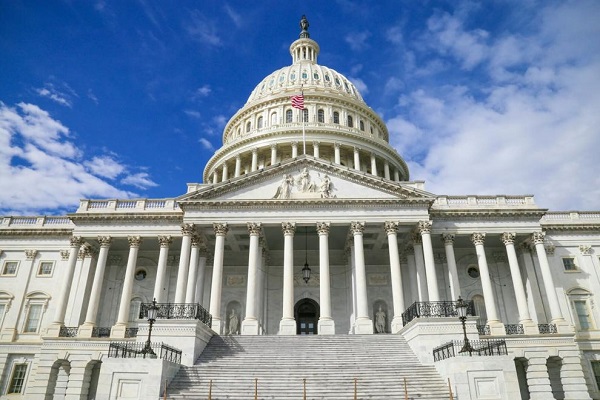From The Center Square
By Casey Harper
“The estimated amounts of waste, fraud, and abuse in COVID-related programs are simply … mind-boggling,” Subcommittee on Government Operations and the Federal Workforce Chairman Pete Sessions, R-Texas, said at the hearing. “Half a trillion dollars. Maybe more. Much of it lost to criminal actors and our enemies. Often using comically simple tactics.”
Years after the passage of federal COVID-era relief and the subsequent loss of likely hundreds of billions of those taxpayer dollars, lawmakers are still unsure where that money went, how to get it back, and seemingly have done little to prevent it from happening again.
Federal watchdog and other reports estimate anywhere from $200 billion to half a trillion was lost to waste, fraud and abuse across various federal and state COVID-era programs.
“Insiders, including those who worked for state workforce agencies, conspired with organized crime factions and other individuals to defraud state UI programs and the states did little to stop them,” a Republican-led House Oversight Committee report released this week said. “Some states even hired individuals convicted of identity theft to process UI claims.”
Examples like that and the scope of the amount lost was the subject of a House Oversight hearing this week where lawmakers on both sides of the aisle and experts grappled with the scope of the lost funds and what to do about it.
“The estimated amounts of waste, fraud, and abuse in COVID-related programs are simply … mind-boggling,” Subcommittee on Government Operations and the Federal Workforce Chairman Pete Sessions, R-Texas, said at the hearing. “Half a trillion dollars. Maybe more. Much of it lost to criminal actors and our enemies. Often using comically simple tactics.”
The most common among those tactics was stealing unemployment dollars doled out by the federal government during the pandemic.
One inspector general report from the Small Business Adminstration estimated at least $200 billion in taxpayer money was lost.
“We estimate that SBA disbursed over $200 billion in potentially fraudulent COVID-19 EIDLs, EIDL Targeted Advances, Supplemental Targeted Advances, and PPP loans,” the report said. “This means at least 17 percent of all COVID-19 EIDL and PPP funds were disbursed to potentially fraudulent actors.”
Nearly all of those “fraudulent actors” have so far gotten away with the theft.
Congress approved $40 million for the Pandemic Response Accountability Committee, tasked with finding and preventing fraud. That committee and other investigative efforts have shown the COVID-era fraud was rampant and that little has been done to recover those funds.
That committee’s authority expires next year.
“Every dollar that goes to a fraudster doesn’t go to the small business, to the unemployed, to others that Congress were intending to help,” Michael Horowitz, Chair of PRAC, said at the oversight hearing this week. “If we want to continue to advance the fight against improper payments and fraud, we shouldn’t allow this important and fraud fighting tool to expire.”
Horowitz also said at the hearing that there is “clearly insufficient” access to data for oversight, such as accessing Social Security Administration’s death database so that payments are not sent to deceased individuals. He also pushed for his authority to be expanded to helping other agencies.
Orice Williams Brown, chief operating officer at the U.S. Government Accountability Office, also testified at the hearing that federal agencies can do more to prevent fraud of this kind. But federal agencies are not alone in the blame.
The House Oversight report released this week is called the “Widespread Failures and Fraud in Pandemic Unemployment Relief Programs” showing that states mishandled funds doled out by the federal government for unemployment insurance, sometimes with little oversight.
From the report:
The U.S. Government Accountability Office (GAO) estimates 11 to 15 percent of total benefits paid during the pandemic were fraudulent, totaling between $100 to $135 billion. The Department of Labor (DOL) Office of Inspector General (OIG) estimates that at least $191 billion in pandemic UI payments could have been improperly paid, with a significant portion attributable to fraud. As of March 2023, states reported recoveries of improper payments in an amount of only $6.8 billion.
The design of the Pandemic Unemployment Assistance (PUA) program led to massive fraud. During the program’s first nine months, claimants did not have to provide any evidence of earnings or prior work which made the program susceptible to fraud. DOL reported that the PUA program had a total improper payment rate of 35.9 percent.
Both sides have lamented the lost taxpayer dollars, but so far little has been done to prevent it from happening again, even as Congress continues to pass multi-trillion dollar spending bills often with little time for lawmakers to review.
Lawmakers passed two bills in 2023 to increase reporting from federal agencies on fraud and to prevent those previously convicted of financial crimes from receiving certain federal payment.
The House Oversight report recommended stronger security measures, cross checking with other relevant databases, more oversight and transparency, and more documentation from benefit recipients.
“If this is not a call to action…” Sessions said at the hearing. “I simply do not know what is.”

















